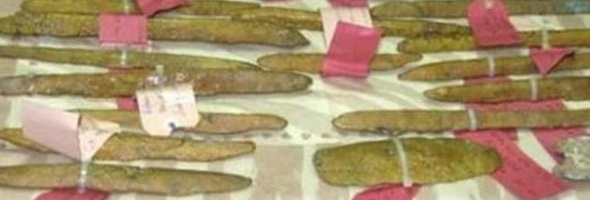
On
story of the mythical island kingdom of Atlantis related in Plato's Critias dialogue). Although nobody today knows exactly what the "orichalcum" referenced in ancient writings was (possibly a gold/copper alloy), the Discovery article predictably led many readers to conflate the supposedly unique and valuable discovery of a rare, ancient alloy (orichalcum) with a presumption that the finding represented evidence of the existence of a mythical Atlantis.
The combination of archeology and folklore proved fascinating to many readers, and on
When the mythical island of Atlantis submerged into the ocean, it took all of its orichalcum with it. The legendary cast metal was reputedly second only to gold in value. Now, a team of divers say they've recovered
Discovery reported the find, but did not provide any information about when the presence of the alloy had been discovered:
"The wreck dates to the first half of the sixth century," Sebastiano Tusa, Sicily's superintendent of the Sea Office, told Discovery News. "It was found about "Nothing similar has ever been found," Tusa said. "We knew orichalcum from ancient texts and a few ornamental objects."
Gleaming cast metal called orichalcum, which was said by Ancient Greeks to be found in Atlantis, has been recovered from a ship that sunk 2,600 years ago off the coast of Sicily.
The article later stated orichalcum is often associated with Atlantis in common lore:
Today most scholars agree orichalcum is a brass-like alloy, which was made in antiquity by cementation. This process was achieved with the reaction of zinc ore, charcoal and copper metal in a crucible.
Describing Atlantis as flashing "with the red light of orichalcum," [Plato] wrote that the metal, second only in value to gold, was mined in the mythical island and was used to cover Poseidon's temple interior walls, columns and floors.
The discovery (while valuable) was not specifically mysterious and failed to yield evidence of a lost civilization. The
Last updated: 9 January 2014
